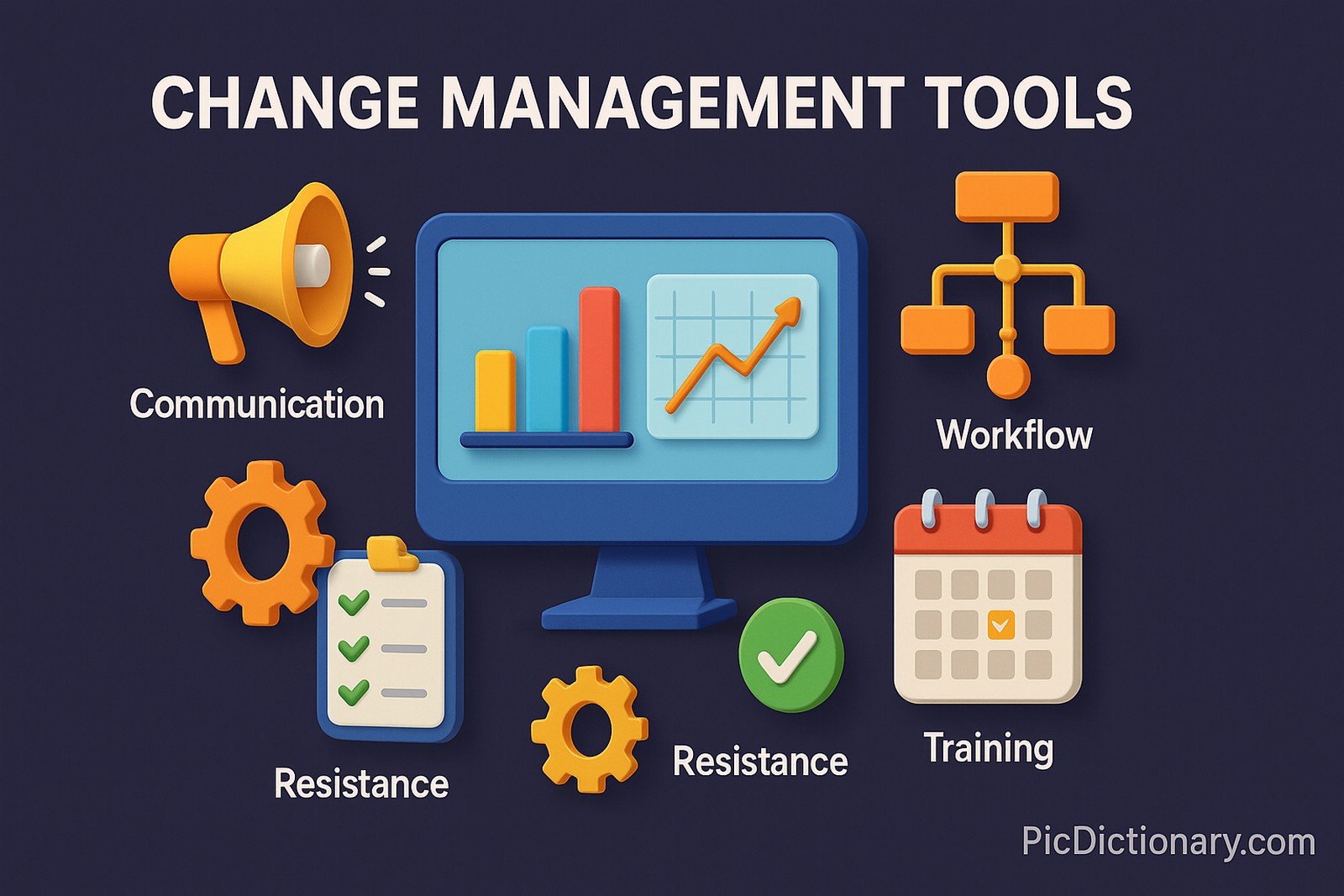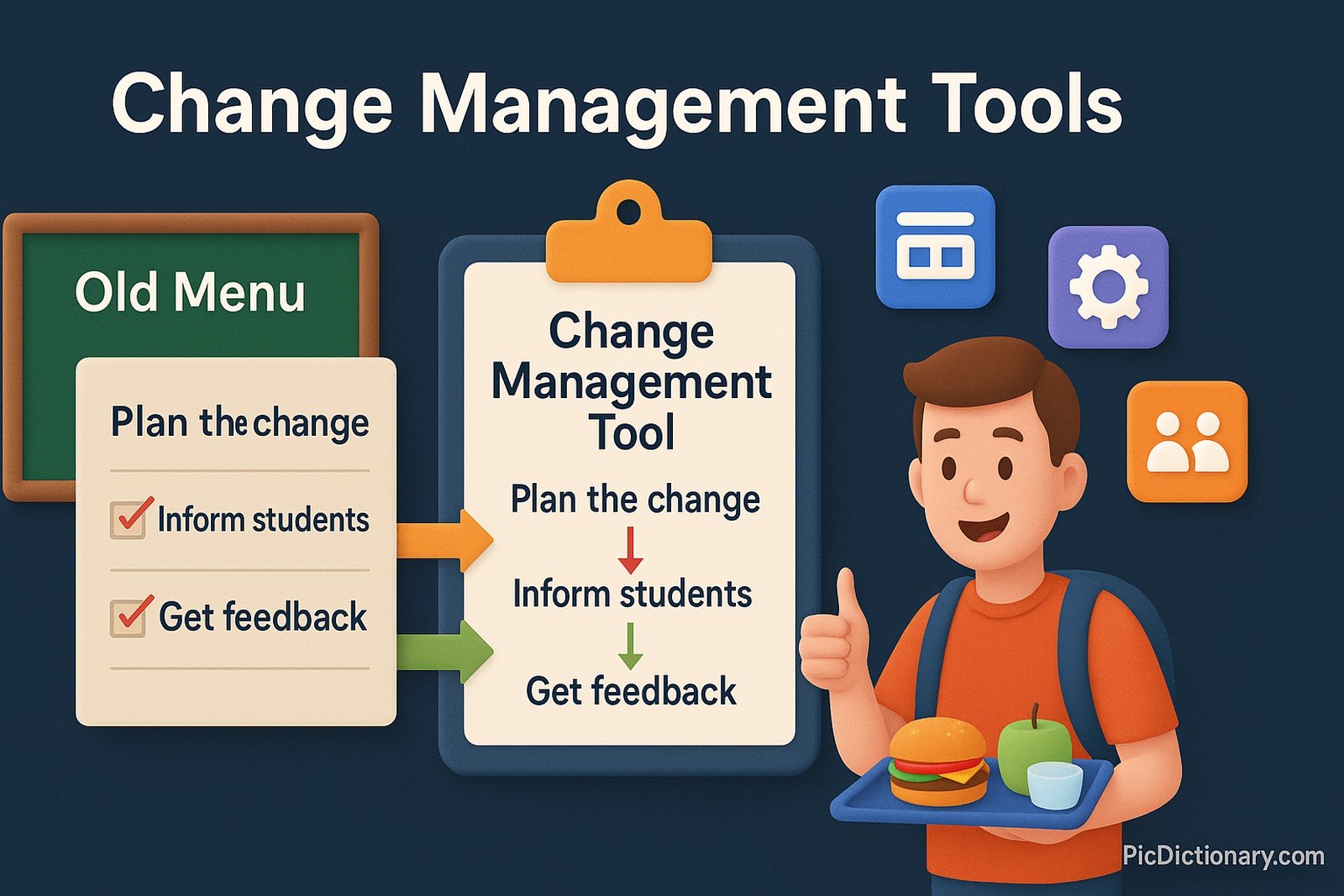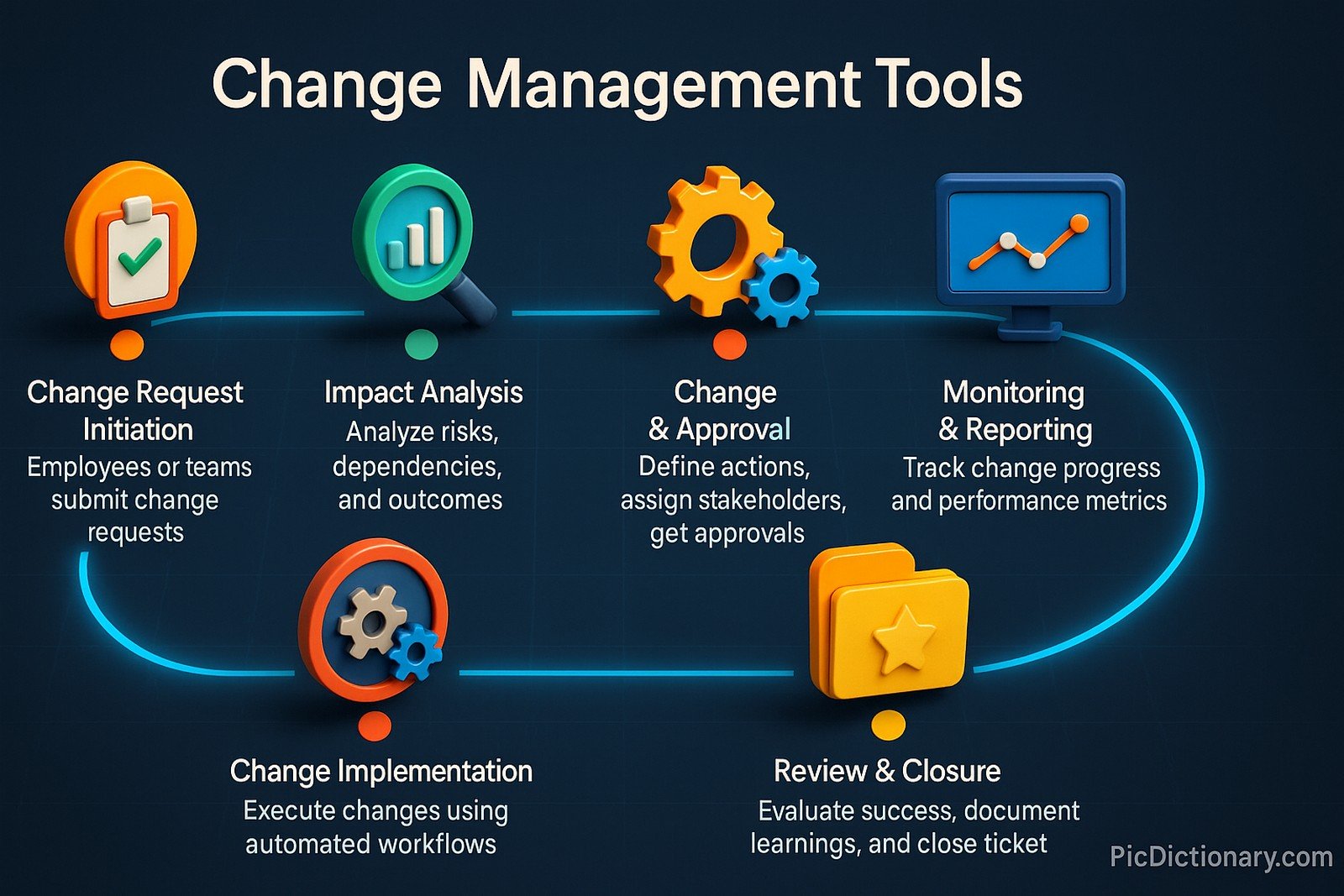Change Management Tools

Quick Navigation:
- Change Management Tools Definition
- Change Management Tools Explained Easy
- Change Management Tools Origin
- Change Management Tools Etymology
- Change Management Tools Usage Trends
- Change Management Tools Usage
- Change Management Tools Examples in Context
- Change Management Tools FAQ
- Change Management Tools Related Words
Change Management Tools Definition
Change management tools are software solutions that assist organizations in planning, implementing, and monitoring changes within a business environment. These tools facilitate seamless transitions by providing frameworks for communication, tracking progress, and managing risks. Popular change management tools include ServiceNow, BMC Remedy, and Jira Service Management. They are used for IT change control, business process modifications, and organizational restructuring. Key features often include workflow automation, stakeholder collaboration, impact analysis, and reporting functionalities.
Change Management Tools Explained Easy
Imagine your school decides to change its lunch menu. To ensure everything goes smoothly, they make a plan, inform everyone, and track whether students like the new menu. Change management tools help businesses do the same thing when they need to update their software, policies, or workflows. They keep track of what’s changing, who is responsible, and if everything is going as planned.
Change Management Tools Origin
The concept of change management emerged in the mid-20th century as businesses sought structured ways to handle transitions. Early methods were manual, relying on checklists and spreadsheets. With the rise of digital transformation in the late 1990s, software solutions were developed to automate and optimize change management processes, leading to the modern change management tools used today.
Change Management Tools Etymology
The term “change management tools” comes from the combination of “change management,” which refers to structured approaches for transitioning individuals, teams, or organizations, and “tools,” which signify the software and methodologies used to facilitate these transitions.
Change Management Tools Usage Trends
The demand for change management tools has grown significantly in recent years, driven by digital transformation, remote work trends, and increased cybersecurity regulations. Companies are investing in robust change management frameworks to ensure compliance, minimize disruptions, and enhance agility. The rise of AI and automation in change management is also shaping the industry, making processes more predictive and efficient.
Change Management Tools Usage
- Formal/Technical Tagging:
- IT Service Management (ITSM)
- Business Process Management (BPM)
- Enterprise Resource Planning (ERP) - Typical Collocations:
- "change management software"
- "IT change control tools"
- "workflow automation in change management"
- "enterprise change tracking"
Change Management Tools Examples in Context
- An IT team uses ServiceNow to schedule and track system updates with minimal downtime.
- A large corporation integrates Prosci ADKAR tools to manage employee adaptation to a new work-from-home policy.
- A hospital adopts BMC Remedy to ensure compliance when modifying patient data handling procedures.
Change Management Tools FAQ
- What are change management tools?
Change management tools are software applications that help organizations plan, track, and execute changes efficiently. - Why are change management tools important?
They reduce risk, improve communication, and ensure smooth transitions in business processes. - What are some popular change management tools?
Some widely used tools include ServiceNow, BMC Remedy, Jira Service Management, and Prosci ADKAR. - Who uses change management tools?
IT teams, project managers, HR professionals, and business analysts commonly use these tools. - How do change management tools work?
They provide workflows, automation, and tracking mechanisms to manage changes systematically. - Can small businesses use change management tools?
Yes, many tools offer scalable solutions suitable for small to medium-sized businesses. - What industries use change management tools?
Industries like IT, healthcare, finance, and manufacturing rely heavily on change management tools. - What is the difference between change management and project management?
Change management focuses on people’s adaptation to change, while project management focuses on task execution. - Are there free change management tools available?
Yes, some open-source tools like OTRS and OpenProject offer basic change management functionalities. - How does AI impact change management tools?
AI enhances automation, predictive analytics, and decision-making in change management.

Change Management Tools Related Words
- Categories/Topics:
- IT Service Management
- Business Process Automation
- Organizational Change
Did you know?
Change management tools played a crucial role in the rapid shift to remote work during the COVID-19 pandemic. Companies relied on these tools to implement new policies, deploy remote IT solutions, and track workforce adaptability, ensuring business continuity in uncertain times.
PicDictionary.com is an online dictionary in pictures. If you have questions or suggestions, please reach out to us on WhatsApp or Twitter.Authors | Arjun Vishnu | @ArjunAndVishnu

I am Vishnu. I like AI, Linux, Single Board Computers, and Cloud Computing. I create the web & video content, and I also write for popular websites.
My younger brother, Arjun handles image & video editing. Together, we run a YouTube Channel that's focused on reviewing gadgets and explaining technology.



Comments powered by CComment